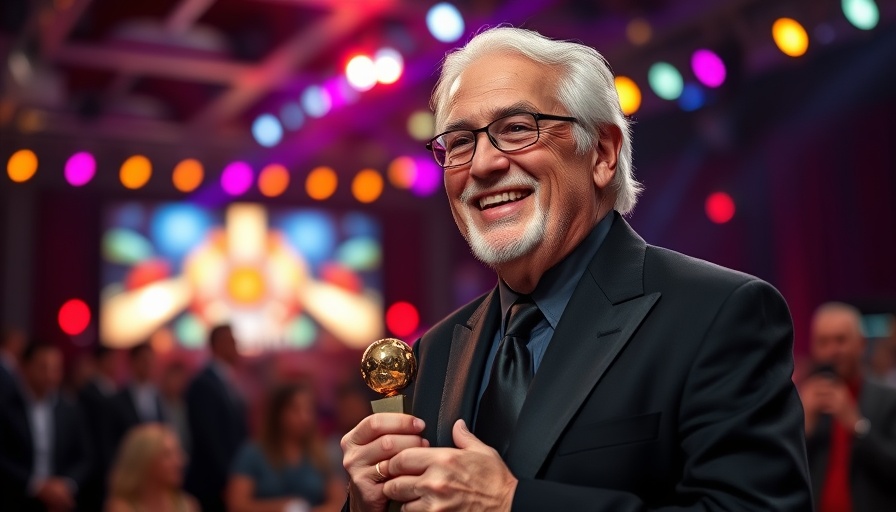
Jafar Panahi Wins Prestigious Cannes Award with His Riveting Film
In an extraordinary moment for cinema and political expression, Iranian director Jafar Panahi's gripping film It Was Just An Accident has clinched the prestigious Palme d'Or at the 2025 Cannes Film Festival. After being banned from making films for 15 years, Panahi's victory at Cannes underscores not just his resilience but also the power of art in the face of oppression.
The Emotional Weight of Panahi's Journey
Panahi's win carries profound significance. It serves as a testament to the struggles faced by countless Iranian artists, especially in light of the recent social upheaval sparked by the death of Mahsa Amini in 2022. Amini’s tragic fate at the hands of Iran's morality police ignited protests across the nation, focusing global attention on issues of freedom, expression, and human rights.
During his acceptance speech, Panahi dedicated the accolade to all Iranians, remarking, "Hoping that we will reach a day when no one will tell us what to wear or not wear, what to do or not do." This statement resonates deeply within the context of the ongoing tensions between personal freedoms and governmental controls in Iran.
A Closer Look at 'It Was Just An Accident'
The film follows a garage owner who kidnaps a man he believes tortured him during his imprisonment. As he grapples with revenge and forgiveness, Panahi explores themes of torment, power, and morality, compelling audiences to question the very nature of justice. The acclaimed film is only the second Iranian feature to win the Palme d'Or, mirroring a historical narrative set by Abbas Kiarostami’s Taste of Cherry in 1997.
The Impact of Award Ceremonies on Global Discourse
Film festivals like Cannes are not merely platforms for art; they serve as crucial arenas for cultural dialogue and social awareness. Panahi's recognition signifies how art can push boundaries and spark conversations about pressing global issues. Jury president Juliette Binoche remarked on the transformative power of art, highlighting the essential role it plays in our understanding of complex narratives and human emotions.
What Comes Next for Panahi?
While he is set to return to Iran shortly after the festival, Panahi's prospects remain uncertain. His previous endeavors, undertaken under the shadow of government scrutiny, remind us that for many artists, the struggle for creative expression is constant. Yet, Panahi's resolve is clear: “Win or not, I was going to go back either way. Don't be afraid of challenges,” he declared. His story continues to inspire those facing adversity in their artistic pursuits.
The Broader Picture: Art in the Face of Adversity
Panahi's triumph at Cannes resonates beyond cinema. It prompts reflections on the role of artists and filmmakers in our current political landscape. The recognition of Panahi's work places him alongside other prominent figures like Richard Linklater and Wes Anderson, whose films also graced the competition this year.
As audiences worldwide consume films and art reflecting social truths, the hope is that they will foster understanding and compassion—reminding us that the fight for freedom and rights transcends borders.
Engaging with Current Events through Film
Panahi's success emphasizes the importance of engaging with current events through channels like cinema. As audiences consume breaking news today, filmmakers play a pivotal role in amplifying marginalized voices and perspectives. Films such as It Was Just An Accident do more than entertain—they educate, inspire, and invite reflection on our societal values.
Closing Thoughts: Lessons in Resilience
Jafar Panahi's film not only represents a personal win but also highlights the larger struggle for artistic freedom against oppressive regimes. Audiences are reminded of the vital role cinema plays in political discourse and social activism. In celebrating his story, we recognize the indomitable spirit of those who dare to challenge the status quo.
As you journey through the latest headlines and stories in our daily news digest, remember the voices behind the films you watch, and consider how these narratives influence our understanding of current events.
 Add Row
Add Row  Add
Add 




 Add Row
Add Row  Add
Add 

Write A Comment